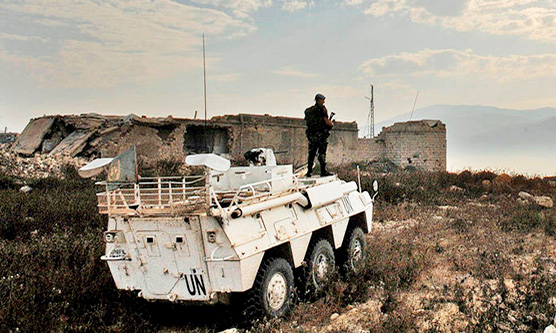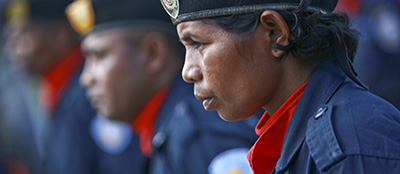This weekly Covid-19, Conflict, and Governance Evidence Summary aim to signpost DFID and other UK government departments to the latest evidence and opinions on Covid-19 (C19), to inform and support their responses. This week, features resources on public perceptions of government responses to C19 (comparing views from democracies and non-democracies) and how C19 is shaping…» more
Conflict
Covid-19, Conflict, and Governance Evidence Summary No.5
This week, features resources on virtual parliaments and virtual qualitative research methods; and how C19 is affecting positive peace, conflict dynamics, and peacekeeping. Many of the core C19 themes continue to be covered this week, including increasing gender-based violence and hunger, C19-related media suppression, the evolving new world order (or ‘disorder’), and corruption. The summary…» more
Covid-19, Conflict, and Governance Evidence Summary No.4
This weekly Covid-19, Conflict, and Governance Evidence Summary aims to signpost DFID and other UK government departments to the latest evidence and opinions on Covid-19 (C19), to inform and support their responses. This week, features resources on: the gender gap in C19 responses; questions to ensure conflict sensitivity in C19 responses; how to protect children…» more
Conflict analysis of Bangladesh
This rapid literature review examines the root causes and dynamics of conflict and (in)stability in Bangladesh. Key findings include: Conflict Profile: Bangladesh has a violent political culture, and has experienced widespread political violence, especially around elections – this is a feature of its increasingly authoritarian democracy Social, ethnic, and ...» more
Covid-19, Conflict, and Governance Evidence Summary No.3
This weekly Covid-19 Conflict and Governance Evidence Summary aims to signpost DFID and other UK government departments to the latest evidence and opinions on Covid-19 (C19), to inform and support their responses. This week features resources on why we need ‘leader-centred’ analysis to understand how individual leaders’ choices have shaped the effectiveness of C19 responses…» more
Covid-19, Conflict, and Governance Evidence Summary No.2
This weekly Covid-19 Conflict and Governance Evidence Summary aims to signpost DFID and other UK government departments to the latest evidence and opinions on Covid-19 (C19), to inform and support their responses. This week, key focus issues and themes include: the impact of C19 in Latin America, as it now appears to be the epicentre…» more
Covid-19, Conflict, and Governance Evidence Summary No.1
This weekly Covid-19 Conflict and Governance Evidence Summary aims to signpost DFID and other UK government departments to the latest evidence and opinions on Covid-19, to inform and support their responses. This week, many of the key themes that emerged at the start of the Covid-19 continue to be discussed, including: allegations of corruption related…» more
The COVID-19 Pandemic and Response on Violent Extremist Recruitment and Radicalisation
This rapid evidence review provides evidence on the potential impacts of the COVID-19 pandemic and response on violent extremist recruitment and radicalisation. It draws on a mixture of academic and grey literature from multinational and bilateral institutions as well as nongovernment organisations (NGOs) and think tanks. Given the rapidly developing global context, it also ...» more
Media/communications on peacebuilding/social cohesion/changing prevailing narratives on conflict
The media can play a positive role in peacebuilding/conflict prevention. Recognition of this has led to increasing programmes on media/communications and peacebuilding, with common interventions including training of journalists, and development of pro-peace programme content. However, there are significant challenges in designing and implementing such programmes, and even more ...» more
Responding to popular protests in the MENA region
This review looks at government responses to violent protests in a selection of countries in the Middle East and North Africa (MENA). Focusing on the 2011 Arab Spring protests, it finds that the initial response of most regimes was violent repression – Tunisia where the president stepped down, and Morocco and Jordan where the respective monarchies promised reform, are the only ...» more
International Actors’ Support on Inclusive Peace Processes
This rapid literature review collates evidence from academic and grey literature on support on inclusive peace processes. The review identified limited evidence based on robust evaluations, there is, however, a wide range of reviews (principally case studies) of peace processes and national dialogues that have been collected and collated to distil lessons on what works and ...» more
Conditionality and other approaches to secure women’s rights provisions in peace processes
This rapid literature review found no examples of the use of aid conditionality specifically to ensure inclusion of women’s rights provisions in peace process outcomes but did identify other effective approaches, notably mobilisation of women, external pressure by mediators/international development partners, and funding and capacity building support for women’s groups. There ...» more
Lessons from the use of aid conditionality in peace processes
This rapid literature review collates lessons from the literature on peace conditionality. This is a companion paper to Herbert (2019)1 which looks more specifically at lessons related to aid (conditionality) and non-state armed groups (NSAGs). While there is literature on peace conditionality more generally – e.g. being used for a range of purposes, and at different ...» more
Lessons from stabilisation, statebuilding, and development programming in South Sudan
This rapid literature review collates lessons from major evaluations and learning reviews from development, state-building and stabilisation programming in South Sudan since independence in 2011. Key findings include: Donors in South Sudan have had to transition from humanitarian to development aid and back and forth a number of times as conflict has broken out. Donors ...» more
Support for civil society engagement in peace processes
There is a widespread acknowledgement of the importance of civil society engagement in peace processes (Inclusive Security, 2013; Peace Direct, 2019). This is reflected in the wide range of interventions being carried out by various donors to support such engagement. This review looks at the effectiveness of interventions specifically aimed at supporting civil society groups ...» more
Preventing/Countering Violent Extremism Programming on Men, Women, Boys and Girls
Gender and age can have a big influence on people’s roles in relation to violent extremism: if they are vulnerable to recruitment, if they join violent extremist groups, the driving factors, what their participation in violent extremism entails, and – critically – what approaches should be taken to preventing or countering violent extremism (P/CVE). Hence, it is important not ...» more
Automation of government processes
This rapid literature review examines the impact of, and lessons from, automating government processes in middle-income countries (MICs) and fragile and conflict affected environments (FCAEs). ...» more
Conflict analysis of The Philippines
This rapid literature review examines the main conflict and instability drivers in the Philippines. Key findings include: Conflict profile The conflict has been a longstanding feature of the Philippines, with two long-running insurgencies, and a number of other types of conflict and violence. The current situation is complex and dynamic, with an “increasingly fragmented ...» more
Community cohesion projects to prevent violent extremism
This review looks at the use of community cohesion projects to prevent or counter violent extremism (P/CVE). It finds that such initiatives can be helpful in conflict-affected societies, but there are limited evaluations in the literature, and these generally do not make a direct causal link between interventions to promote social (community) cohesion and P/CVE. The retreat of ...» more
Lessons from environmental peacebuilding programming
This rapid literature review collates lessons from conflict resolution/peacebuilding programmes that include land, resource management, and/or environmental issues. This is a burgeoning area of research which draws on a number of interrelated concepts such as environmental peacebuilding, resilience building, and bottom-up peacebuilding. Ide and Scheffran (in Ide, 2017, p.545) ...» more


